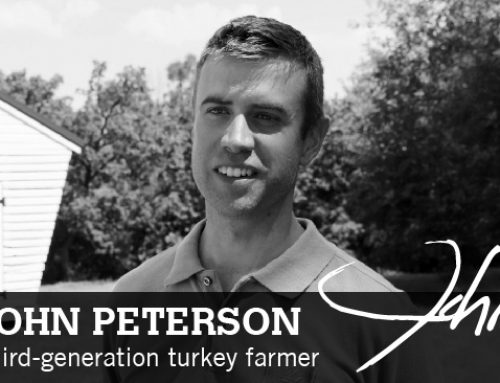Chilly February greetings from our farm! We’ve got a new flock of poults on the farm, so our always-warm brooder barn becomes our escape from the cold.
The Star Tribune ran a recent series called The Future of Food. It was a lot to digest – bad pun, I know – but I’d definitely recommend the read to anybody who’s wresting with the intersection of modern food and farming. The story accurately captures the questions and concerns from both sides of the table: farmers and consumers.
Throughout the long article, one small section stuck with me as a thesis. The writer profiled a young farmer who had returned to his family’s crop farm in Western Minnesota and had cut chemical use, added cover crops, and increased crop rotations, all things many consumers see as central to sustainable agriculture. Yet, tucked into the profile, it said:
“All the extra time and energy he puts into his farming practices don’t earn him a higher price from those big customers. Unlike with organic products, the current food system doesn’t segregate crops grown on family farms using different soil health techniques. His crop gets blended with the crops produced by conventional methods, meaning consumers can’t choose foods based on soil practices.” (Star Tribune, December 17, 2017)
This is the trap of commodity agriculture, for both consumers and farmers, and it’s true throughout most of agriculture. Without a market that distinguishes different practices, rather than assuming generic consistency, farmers aren’t able to easily make change in the way our food is grown. I’d venture to say many farmers feel as stuck as the consumer, seeking something different from our food system.
There is, however, a feel good story here, because the agricultural landscape is changing. We see it every day at Ferndale Market. New models are emerging, and farms like ours are able to direct-market products to consumers who see value in distinctive practices. Supporters like you create real change in food and agriculture by valuing farms like ours and the practices we’ve sustained for 80 years. You, as a conscious consumer, have the greatest power to expand the marketplace, and you do it with each purchase of a distinctive food from a local, independent farmer.
We thank you for creating markets and sustaining practices, while enjoying good food to boot.


Leave A Comment